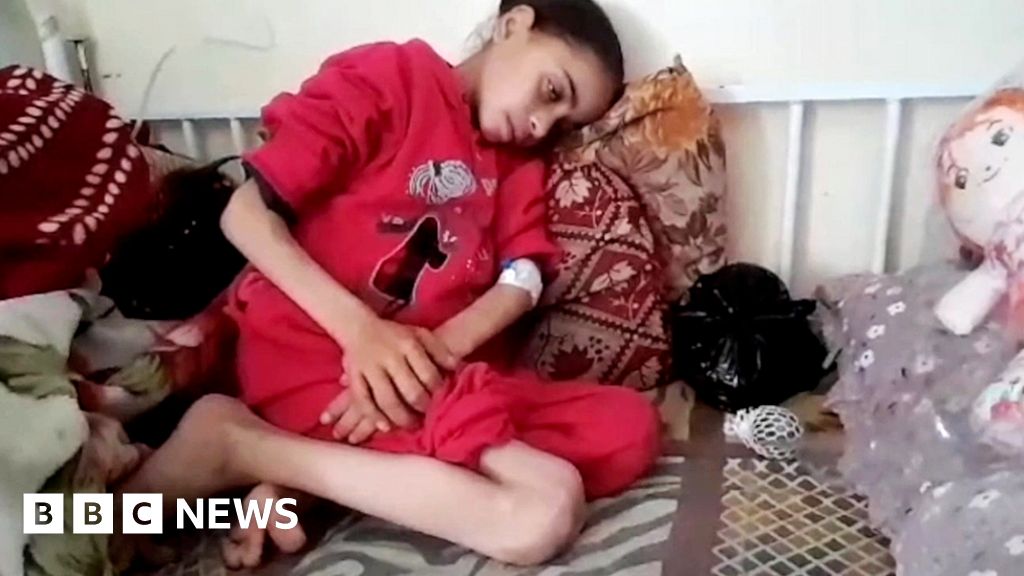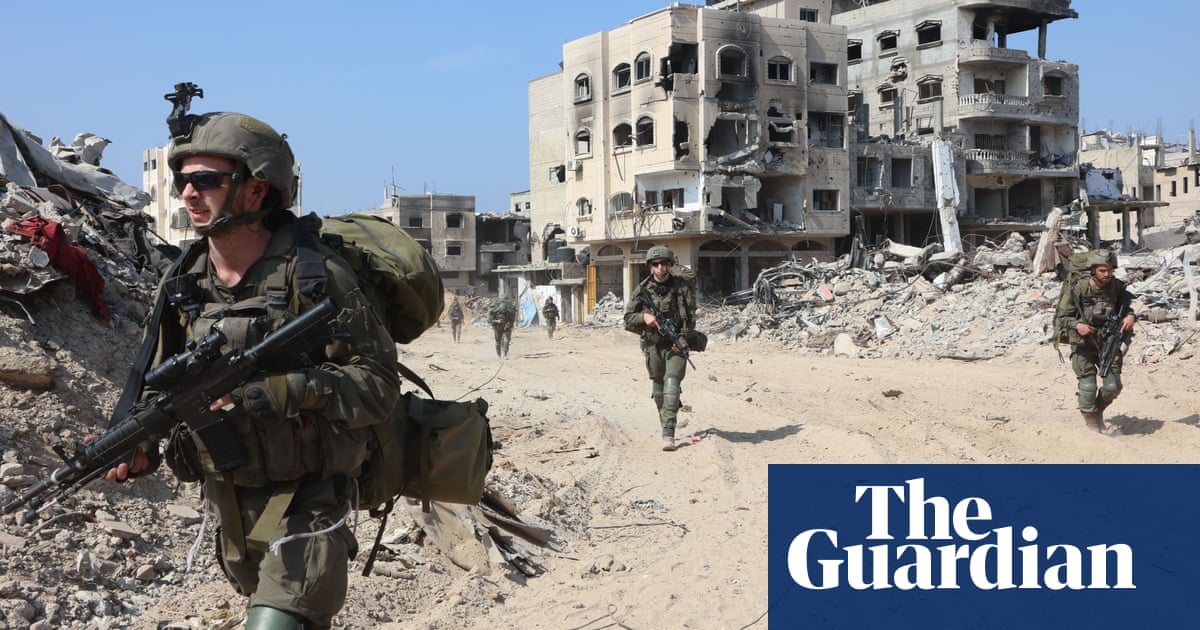
#175 THE G|O BRIEFING, MARCH 28, 2024
Russian Envoy Praises Geneva’s Role but Dismisses Swiss Efforts to Organize Peace Conference | Stormy Session at Human Rights Council as Special Rapporteur Accuses Israel of Genocide—And a US Court Case Asks If Israel's Greatest Ally Is Complicit?
Today in The Geneva Observer: The Russian Ambassador to Geneva met the UN Press on Tuesday. He praised the UN, dismissed Switzerland’s efforts to organize a peace conference, and explained why Russia still pays its dues to CERN—despite the fact that the European Research Center sanctioned his country last December by killing a long-standing cooperation agreement with the Russian Federation.
Russian Senior Diplomat Praises International Geneva’s Role but Dismisses Switzerland’s Efforts as Peacemaker
In an answer to The G|O, Gennady Gatilov, the Russian Ambassador to the UN in Geneva—a senior diplomat widely credited to have the ear of both Vladimir Putin and Sergei Lavrov—said on Tuesday (March 26) that Russia still believes International Organizations “play, and should continue playing, an important and constructive role” in addressing the challenges that we are all facing. “We believe that the United Nations should continue its central coordinating role in consolidating efforts of all countries,” he said to reporters during a briefing organized by the UN Correspondents’ Association (ACANU).
Gatilov’s answer came after I asked the Russian envoy why Russia was still meeting its financial obligations to CERN after the European scientific organization decided last December to kill a long-standing cooperation it had with the Russian Federation. The continuation of the payments to CERN was disclosed in a report from TASS—the official Russian news agency—commenting on The G|O story. “We are honest in fulfilling our financial obligations to all international organizations, including CERN and many others,” and this has been the case “throughout our history,” the Russian Ambassador stressed.
A CERN spokesperson explained to The G|O that “Russia does not formally contribute on a recurring basis to CERN’s budget, as the Member States do, but has contributed to certain projects and experiments, particularly in terms of equipment. Due to restrictions and Council resolutions, Russia can no longer participate in new projects, particularly the high-luminosity LHC currently in preparation. Until the end of the cooperation agreement, Russia will continue to contribute a few percent to certain experiments and their operating costs,” the spokesperson clarified.


During the ACANU briefing, Gatilov went on to bemoan the sanctions imposed on his country in response to the full-scale invasion of Ukraine in February 2022. “It is not a secret that Western competitors are trying to push us out of these organizations, […] to push our experts or our representatives from governing bodies or many organizations,” he said, adding that “I can frankly and openly tell you that in our conversations in the margins of meetings, many delegations do not support this,” because in certain International Organizations, it is “difficult” to achieve constructive work “without Russian participation.”
The Russian Ambassador reiterated Moscow’s position that Switzerland relinquished its neutrality when it joined the EU sanctions against its country, and dismissed the Swiss Government’s proposal to hold a peace conference: “As of now, we don’t see any possibility that Switzerland would take the lead and organize something,” Gennady Gatilov told the group of reporters, additionally castigating Bern for participating in discussions to use “Russian stolen funds”—Russian assets frozen by Switzerland—to rebuild Ukraine.
More broadly, judging by the diplomat’s answers, the prospect of peace talks appeared more remote than ever. While saying that his country remains open to “negotiations,” the Russian diplomat stressed that “no serious agreement can be reached” as long as Volodymyr Zelensky’s administration remains a “terrorist regime” that continues to receive arms and funding from the West.
A paper titled ‘On the Role of the Western Countries in the Ukrainian Conflict’ distributed by the Russian Mission warns that Western plans to supply Ukraine with F-16 fighter jets “would escalate the conflict with the risk of a direct armed clash between NATO and Russia.”
-PHM
For many Human Rights Council (HRC) observers, the Human Rights and Alliance of Civilizations, the famed chamber of the HRC at the Palais des Nations, had not witnessed such a contentious session as the one that took place on Tuesday when the UN Special Rapporteur on human rights in the Palestinian territories presented her report on the situation on Gaza. Francesca Albanese accused Israel of committing genocide in its war against Hamas. The G|O’s Jamil Chade was there.
Tensions at the Human Rights Council around a Report on the Situation in Gaza. But Will Attacks on the Messenger Detract from the Message, Many Members Asked?
It’s rare to see such stridency and tensions as were on display at the Human Rights Council (HRC) on Tuesday, March 26, as Francesca Albanese, the UN Special Rapporteur on the situation on the human rights in the Palestinian territories presented her report. She’d clearly done away with diplomatic niceties, titling it ‘Anatomy of a Genocide’ for maximum impact.
It is the first time a document from the HRC has officially brought accusations of genocide against Israel. Special Rapporteurs are independent, recognized experts appointed by the Human Rights Council, although they do not speak on behalf of the UN.
The UN itself, through its highest court, the International Court of Justice, has already spoken of “plausible genocide” being committed by Israel in Gaza. The Italian international lawyer went a step further in her report: “There are reasonable grounds to believe that the threshold indicating the commission of the crime of genocide against Palestinians as a group in Gaza has been met,” she said. “Israel has committed three acts of genocide with the requisite intent: causing serious bodily or mental harm to members of the group; deliberately inflicting on the group conditions of life calculated to bring about its physical destruction in whole or in part; imposing measures intended to prevent births within the group,” Albanese argued.
Albanese asserted that Israel’s intentional acts are “an attempt to legitimize genocidal violence against the Palestinian people.” “By deliberately stretching the definitions of human shields, evacuation orders, safe zones, collateral damage, and medical protection, Israel has used their protective functions as ‘humanitarian camouflage’ with the effect of concealing patterns of conduct, from which the only inference that can reasonably be drawn is a state policy of genocidal violence against the Palestinians.”
“When genocidal intent is so conspicuous, so ostentatious, as it is in Gaza, we cannot avert our eyes: we must confront genocide, we must prevent it, and we must punish it,” Albanese exhorted the Council members.
Not all of them listened to her presentation: Both Israel and the US boycotted the meeting. The government of Israel blasted Albanese on social media, calling her report an “obscene inversion of reality, where a so-called expert can make outrageous accusations, the more extreme, the better, that hinges on telling a story in which Hamas, its abuse of civilians and civilians’ infrastructure, and its utter brutality simply disappear.” ‘Anatomy of a Genocide’, said Israel, is “yet another stain on her biased mandate, and only brings the Human Rights Council further into disrepute.”
The US also called Albanese and her mandate “biased against Israel.” The publication of her report came amid increased international pressure on Israel, including from the US, who, the day before Albanese addressed the Human Rights Council, chose not to veto a UN Security Council resolution asking for an immediate ceasefire in Gaza for the first time since the beginning of the war.
While being diplomatically active behind the scenes on the Israeli-Hamas war, the UK, Switzerland, Germany, France, Japan, Australia, Canada, and others did not take the floor during the debate. The EU, not a member of the Council, delivered a brief statement, with Brussels taking note of the report and calling for “proper and independent investigations on all allegations.” The EU said it was appalled by the civilian death toll, but insisted on recognizing Israel’s right to self-defense.
For some non-Western diplomats and Council watchers, the silence of the Western members of the Council was widely interpreted as a sign of their displeasure and uneasiness about the report—particularly in light of the fact that the Human Rights Council did not hold an urgent debate on the Israeli-Hamas war.
Both France and Germany had previously condemned Francesca Albanese for what they considered an antisemitic statement when she claimed that the Hamas attacks were not directed against Jews but were a reaction to the Palestinians’ “oppression by Israel.”
“The October 7 massacre is the biggest antisemitic massacre of the 21st century. To deny it is wrong. It is a disgrace to appear to justify it by dragging in the name of the United Nations,” the French Foreign Ministry tweeted in reaction. “These remarks are all the more scandalous given that the fight against antisemitism and all forms of racism are at the heart of the UN’s founding,” the Ministry said.
Le massacre du 7 octobre est le plus grand massacre antisémite du 21e siècle. Le contester est une faute. Sembler le justifier, en y mêlant le nom des Nations Unies, est une honte.
— France Diplomatie🇫🇷🇪🇺 (@francediplo) February 10, 2024
Ces propos sont d’autant plus scandaleux que la lutte contre l’antisémitisme et toutes les formes… https://t.co/IGOfEP5Q0q
But Albanese was able to count on wide support at the Council: In an ostensibly concerted action, Arab governments and their allies took the floor in massive numbers to support Albanese, after her presentation was met with applause in the Council room.
Speaking for the Organization of Islamic Cooperation, Pakistan backed her call for sanctions and an arms embargo against Israel. "We commend your courage in documenting acts amounting to genocide in Gaza,” the group said. Egypt, speaking for the Arab group countries, affirmed their support for Albanese’s mandate. Qatar, on behalf of the Gulf Cooperation Council, also came to her support.
Tensions rose when civil society took the floor. The European Union of Jewish Students called for Albanese’s “resignation,” claiming it was “imperative” in order for the Human Rights Council to be credible. Albanese was also attacked by the World Jewish Congress, who accused her of attempting to “entrench divisions” and bring “a one-sided narrative instead of pursuing a balanced and inclusive approach.”
The Council's president, Moroccan Ambassador Omar Zniber, twice interrupted the session to caution speakers, a call joined by the Palestinian representative who urged the Council’s president to forbid NGOs from personally attacking the Special Rapporteur. Brazil also said it condemned “hate speech and misogynistic rhetoric against the Special Rapporteur, considering them assaults on the multilateral system and international law.”
Speaking to reporters yesterday (March 27) in Geneva, Francesca Albanese admitted she was going through a challenging moment due to the backlash against her report. But she reaffirmed her determination that Israel was committing genocide in Gaza, while emphasizing that she doesn’t speak for the UN. She also disclosed that she had received threats, noting, however, that she hadn’t deemed them serious enough to warrant additional precautions.
-JC
Related content:

In his latest Op-Ed, Daniel Warner continues to reflect on what he believes is the complicity of Israel’s main ally and backer, the US, in committing what the International Court of Justice described as acts amounting to “plausible genocide.” He does so today in dissecting a brief filed in support of a California court case against Joe Biden. The Geneva Graduate Institute’s Andrew Clapham, one of the world’s leading experts on international law, is among the more than 30 signatories of the amicus curiae, along with Philip Alston and Richard Falk.
Is the US Complicit in Israel’s “Plausible” Genocide?
- The prohibition of genocide, complicity in genocide, and the duty to prevent genocide are fundamental norms of customary international law from which there are no exceptions.
- Being aware of the risk of genocide obliges states to prevent genocide occurring.
“Honoring our alliances does not mean facilitating mass killing,” Representative Ocasio-Cortez said on the floor of the House of Representatives on March 22. “We cannot hide from our responsibility any longer.”
“Facilitating mass killing” and “responsibility” could include the United States’ legal complicity. While eyes are on the UN Security Council’s March 25 resolution calling for an immediate ceasefire in the Gaza Strip, a court case in California (Defense for Children International, Palestine, et al. v. Joseph R. Biden, et al.) is worth noting: the case directly challenged the United States’ support for Israel. Although the case, dismissed in January 2023*, would not have forced Israel to withdraw from Gaza, it did raise serious issues about the United States’ complicity in Israel’s continuous violation of human rights and humanitarian law, as well as its egregious non-compliance with the provisional measures ordered by the International Court of Justice (ICJ).


The ICJ ruled on January 26 that it was “plausible” Israel was committing genocide. In addition, in a March 25 report to the Human Rights Council by the Special Rapporteur on the situation of human rights in the Palestinian territories occupied since 1967, Francesca Albanese’s summary was that: “By analysing the patterns of violence and Israel’s policies in its onslaught on Gaza, this report concludes that there are reasonable grounds to believe that the threshold indicating Israel’s commission of genocide is met.”
In the California case, Biden and his administration were accused of illegal complicity in not preventing genocide, as well as contributing to Israel’s genocidal actions. Over thirty eminent legal scholars and practitioners, including Richard Falk, Philip Alston, and Andrew Clapham, presented a brief (Amicus curiae) supporting the case before The United States Court of Appeals for the Ninth District. Without going into all the legalese, the major points in the brief were:
- The prohibition of genocide, complicity in genocide, and the duty to prevent genocide are fundamental norms of customary international law from which there are no exceptions.
- Being aware of the risk of genocide obliges states to prevent genocide occurring. If a state knows genocide is taking place, and the state continues to support the state committing genocide, the supporting state has not fulfilled its legal obligation to prevent genocide and may be held to be complicit in the genocide.
- Historically, in previous cases before the ICJ, the United States has agreed to these fundamental principles.
- Domestic courts, such as California in this case, may enforce fundamental customary international law.
The second major point merits detailed explanation since it refers to two types of violations to the Genocide Convention. The first violation is that the prevention of genocide is a legal obligation. If a state has knowledge that genocide is being committed and does nothing, if it has knowingly failed to prevent genocide, the state is complicit. Furthermore, as the scholars note; “The duty does not require a finding that genocide is occurring; rather, awareness of a serious risk of genocide places an obligation on all States to take whatever action possible and necessary to prevent its occurrence or continuation.” The ICJ’s decision on “plausible genocide” makes this point relevant for the United States, as does the Report of the Special Rapporteur. There is obviously a “serious risk of genocide” being committed by Israel in Gaza, and there can be no doubt of the United States’ “awareness” of it. Therefore, as the brief argues, the United States—like all states that have ratified the Convention—is legally bound “to take whatever action possible and necessary to prevent [the] occurrence or continuation [of genocide].”
The second type of violation in the brief is even more damning for the United States. It describes a positive act of commission rather than the negative act of failure to prevent genocide. If a state continues to support the state committing genocide, the brief points out, the supporting state may be held complicit in genocide’s commission. The United States has continued to supply weapons to Israel following the Hamas attack on October 7. “The United States has quietly approved and delivered more than 100 separate foreign military sales to Israel since the Gaza war began Oct. 7, amounting to thousands of precision-guided munitions, small-diameter bombs, bunker busters, small arms and other lethal aid, US officials told members of Congress in a recent classified briefing,” John Hudson wrote on March 6, 2024, in The Washington Post.
According to the experts’ brief, the United States is therefore twice guilty of violating Article IIIe of the Genocide Convention, which specifically prohibits complicity.
Using a Loophole to Continue Arming Israel
How does the United States continue to supply weapons in violation of the Genocide Convention? The US Arms Export Control Act does permit exceptions for arms sales to close allies, and the United States uses this loophole to continue arming Israel. But using this loophole to continue sending weapons does not exonerate complicity in genocide—at the very least, it is hypocritical. Using the Arms Export Control Act “doesn’t just seem like an attempt to avoid technical compliance with US arms export law, it’s an extremely troubling way to avoid transparency and accountability on a high-profile issue,” according to Ari Tolany, director of the security assistance monitor at the Centre for International Policy think tank, quoted in The Guardian.
Hypocritical and Secretive
According to a recent New York Times article, “Last December, Secretary of State Antony J. Blinken twice invoked a rarely used emergency authority to send tank ammunition and artillery shells to Israel without Congressional review. These were the only two times the administration has given public notice of government-to-government military sales to Israel since October.”
What about other countries? Have they changed their policies towards Israel following the ICJ ruling? The Canadian government, which provides about $4 billion dollars a year in military aid to Israel, recently announced that it would halt arms sales to Israel after the Canadian Parliament passed a non-binding motion to stop the weapons sales. Canada was not alone. “Canada joins the Netherlands, Japan, Spain, and Belgium in suspending arms sales,” Al Jazeera reported.
In addition to countries’ stopping arms sales, The Guardian revealed on March 1 that more than 200 members of parliaments (MPs) from 12 countries had signed a letter trying to persuade their governments to impose a ban on arms sales to Israel. The MPs, a network of socialists and activists, argued that they will not be complicit in “Israel’s grave violation of international law” in its Gaza assault. In their letter, the politicians argued that after the ICJ ruling, “an arms embargo has moved beyond a moral necessity to become a legal requirement.”

The MPs were not alone. UN experts have also stated that “any transfer of weapons or ammunition to Israel that would be used in Gaza is likely to violate international humanitarian law.” The experts, mostly independent rapporteurs for the United Nations Human Rights Council, wrote: “The need for an arms embargo on Israel is heightened by the International Court of Justice’s ruling on 26 January 2024 that there is a plausible risk of genocide in Gaza and the continuing serious harm to civilians since then.”
In relation to the California case, the experts were quite clear; “State officials involved in arms exports may be individually criminally liable for aiding and abetting any war crimes, crimes against humanity or acts of genocide,” they wrote. “All States under the principle of universal jurisdiction, and the International Criminal Court, may be able to investigate and prosecute such crimes.”
The legal argument is clear. The moral argument is clearer. Will political action follow? Eight senators wrote to Mr. Biden on March 11 calling on him to insist that Israel’s Prime Minister Benjamin Netanyahu “stop restricting humanitarian aid access to Gaza or forfeit US military aid to Israel.” Requiring Israel to allow access to humanitarian aid would be a start. Stopping sending military equipment would be even better. But even a UN Security Council ceasefire resolution—on which the US meekly abstained—will not absolve the United States of complicity in Israel’s “plausible genocide.”
-DW
*The case was dismissed on January 31, 2024. The judge ruled that the court lacked jurisdiction over US foreign policy due to the U.S. Constitution's political question doctrine, but that he would have preferred to have issued the injunction and urged President Biden to rethink U.S. policy,[6][7] writing:[8]: 8
« There are rare cases in which the preferred outcome is inaccessible to the Court. This is one of those cases. The Court is bound by precedent and the division of our coordinate branches of government to abstain from exercising jurisdiction in this matter. Yet, as the ICJ has found, it is plausible that Israel’s conduct amounts to genocide. This Court implores Defendants to examine the results of their unflagging support of the military siege against the Palestinians in Gaza. »
Source: Wikipedia
This is a slightly edited version of an article published in Counterpunch.
Today's Briefing: Philippe Mottaz - Jamil Chade
Op-Ed: Daniel Warner
Editorial assistance: David Jenny
Edited by: Dan Wheeler
©The Geneva Observer 2024 - All rights reserved






